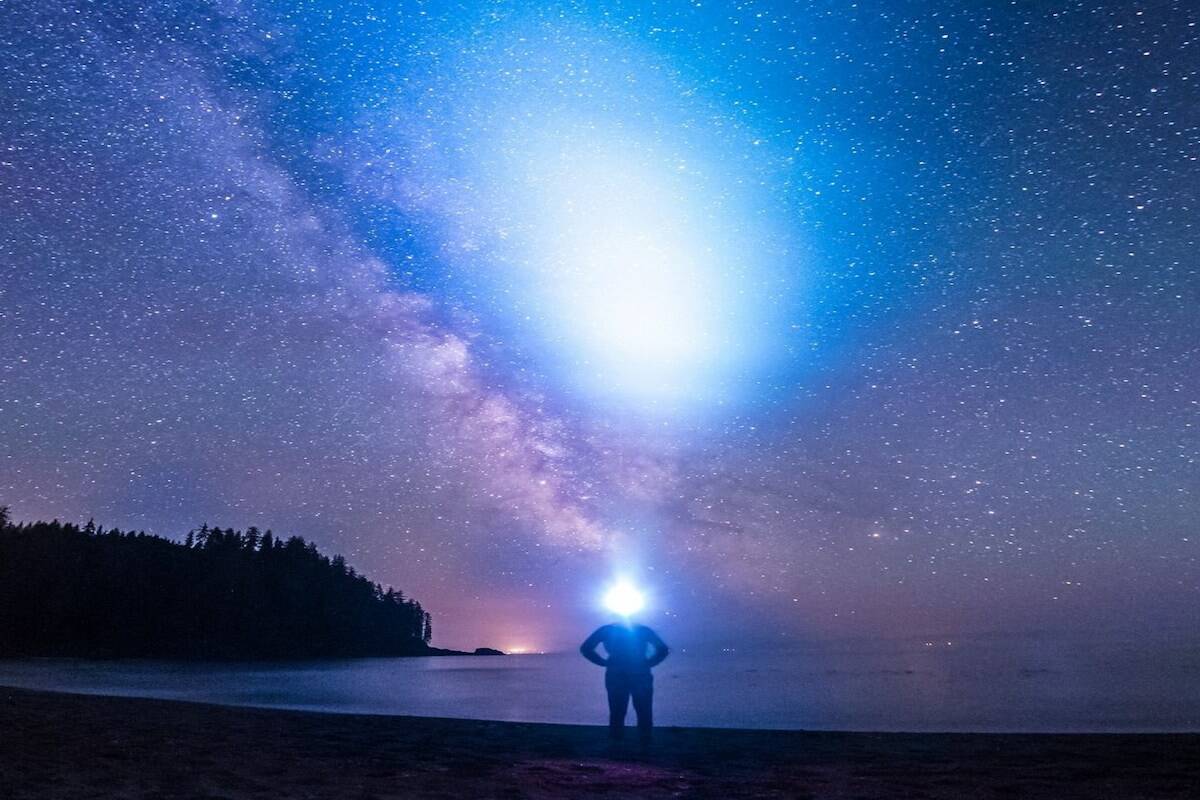Private companies and others are planning on launching up to hundreds of thousands of satellites into orbit over the next decade, an expansion that’s expected to hinder the ability to understand our galaxy’s origin and evolution.
“This is a pretty hot topic in astronomy, a lot of astronomers are understandably quite worried about communication satellites and how they’re going to be disrupting our research,” said University of Victoria PhD student Spencer Bialek, who recently helped author a study on the topic.
The drastic infusion of the satellites would vastly eclipse the fleet of almost 8,500 currently circulating the globe. Satellite trackers show about 60 per cent of those in orbit as of Aug. 31 belong to Starlink – the internet-providing service of Elon Musk’s SpaceX endeavour – which intends to launch tens of thousands more.
Researchers are already seeing satellites contaminate their observations more frequently. Those impacts come from sun-reflecting satellites creating streaks of light across long-exposure images of the galaxy astronomers are taking.
Reflective satellites also leave researchers recording the light wavelengths of stars and galaxies with a superimposed solar spectrum on their readings, while satellites also interfere with radio waves measured by astronomers.
Bialek said the impact on observations could affect scientific conclusions about the galaxy, could result in a less clear picture of space’s properties and may lead to completely wrong findings about individual stars.
Scientists are interested in the properties of stars in our galaxy as they help uncover the age, temperature, atmospheric makeup, gravity and more of the luminary objects. Those aspects reveal how stars were born and how they moved over time – giving humans an understanding of how our galaxy, and others, formed and evolved
“This gives us a really interesting picture of our own galaxy, the whole field is called galactic archaeology and it lets us peer into the past,” Bialek said.
The astronomy concerns over the satellites – some bright enough to see with the naked eye – led to Starlink slightly reducing their reflectivity and trying to direct sunlight back out to space instead of at Earth. The satellites also moved to not use radio waves used by researchers.
However, Bialek said the satellites are still far too bright for astronomers and radio interference continues to be an issue. Another idea has been to broadcast the position of the orbiting crafts to astronomers, but Bialek said those aren’t precise enough and the expanded fleets would still drastically cut down on the time they can run observations.
His study developed methods that could salvage data even if it’s been contaminated. But he said those solutions are far from a free pass for companies launching legions of satellites as his methods only apply to a small subset of astrophysics.
Astronomers hope regulation will limit the number of satellites sent up, while the response from Starlink’s Musk has been that they should just launch more telescopes further into space.
“It kind of just brushed away all the concerns of astronomers of the world,” the PhD student said with a laugh. “So (Musk) doesn’t seem to care too much about ground-based observations.”
Humans are curious creatures and we want to know where we came from and how the planet we inhabit came to be, Bialek said, adding that the study of space transcends gender and race as it binds everyone together.
“It unites all humanity, I’ve never met someone who was not curious about astronomy.”
READ: ‘Quite scary’: Gordon Head resident raises alarm about road near PKOLS

